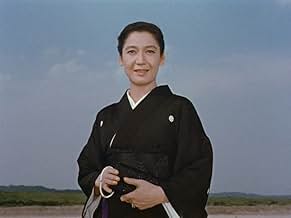Aggiungi una trama nella tua linguaThe family of an older man who runs a small sake brewery become concerned with his finances and his health after they discover him visiting an old mistress from his youth.The family of an older man who runs a small sake brewery become concerned with his finances and his health after they discover him visiting an old mistress from his youth.The family of an older man who runs a small sake brewery become concerned with his finances and his health after they discover him visiting an old mistress from his youth.
- Premi
- 1 vittoria e 1 candidatura in totale
Recensioni in evidenza
Late Spring, Tokyo Story, Early Spring, and Tokyo Twilight
There is no Ozu film nearest Sirk's or Minneli's universe like this one.
Lo sapevi?
- QuizThe last of six collaborations between Yasujiro Ozu and Setsuko Hara.
- Citazioni
Kitagawa Yanosuke: We humans can't come to terms with death until it's too late. Even people like my brother, who did as he pleased. On his deathbed, even Toyotomi Hideyoshi said: "It's as if my glorious life was but a dream within a dream."
- ConnessioniReferenced in Ikite wa mita keredo - Ozu Yasujirô den (1983)
- Colonne sonoreIn a Persian Market
Composed by Albert Ketèlbey
I più visti
- How long is The End of Summer?Powered by Alexa
Dettagli
Contribuisci a questa pagina



































